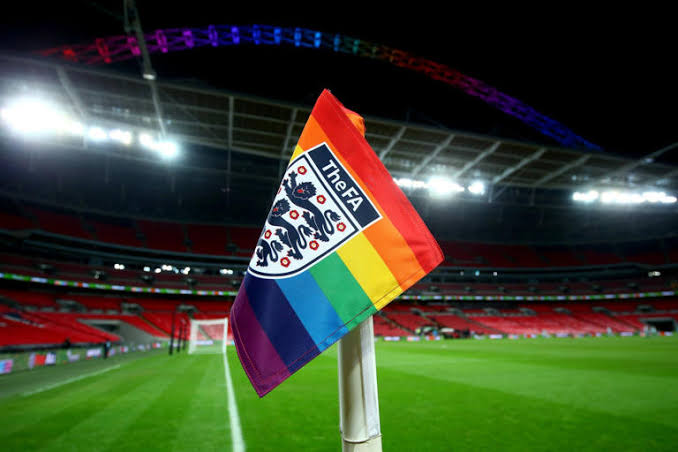18-year-old amateur footballer Cerys Vaughan, has demanded an official apology from the Football Association (FA) after her disciplinary case was quashed.
Vaughan had been sanctioned last year for improper conduct following remarks made to a transgender opponent during a friendly game. However, after months of scrutiny, her punishment was overturned when the FA acknowledged serious flaws in the initial hearing process.
The controversy began in July 2024 during a pre-season friendly in Lancashire, where Vaughan asked a rival player, “Are you a man?” after noticing what she believed was a biological male on the pitch.
Despite the player clarifying their transgender status, Vaughan raised her concerns with the referee, citing fairness and safety. This led to a complaint via Kick It Out, and Vaughan was charged with breaching FA rules, accused of using abusive language.

Although Vaughan denied intending harm, a disciplinary commission imposed a six-match ban, with four suspended, alongside mandatory equality training.
ALSO READ:
- Bentancur charged by English FA over Son comments
- Chelsea rue missed chances as Manchester City progress to FA Cup final
- Manchester City’s financial breach hearing: What to expect as the 115 charges unfold
- Belgium goalkeeper Thibaut Courtois set to miss Euro 2024
Outraged, Vaughan appealed, insisting her actions were misunderstood and unfairly judged. The matter gained attention when former FA chairman Lord Triesman criticized the governing body’s handling of the case in parliament, fueling wider debate on gender eligibility in football.
Case dropped as FA reverses policy
In February, an FA appeal board ruled Vaughan’s original hearing was “unfair,” highlighting that her evidence was cut short and poorly handled. The board quashed the initial ruling and recommended a new hearing, though the case was ultimately dropped when the complainant withdrew.
Vaughan, now speaking publicly for the first time, told BBC Sport, “It was stressful. It’s definitely impacted my normal life a lot.”
Adding a fresh twist, the FA announced a policy shift in early May, introducing a ban on transgender women competing in women’s football from June 1.
The move aligns with a recent UK Supreme Court decision affirming the legal definition of a woman as biological. Vaughan welcomed the ruling, arguing it validates her initial concerns and would have prevented her sanction had it been implemented earlier.

While supporters of the ban hailed it as a win for fairness and safety, critics accused the FA of exclusion and discrimination. Vaughan, however, remains firm, stating, “I love football, and if biological males get involved, it’s not an even game.”
Despite the FA’s closure of her case, she continues to press for an apology, insisting the governing body mishandled her situation and caused unnecessary distress.
The FA maintains that no further action will be taken, citing confidentiality, while acknowledging the emotional weight of the matter. Meanwhile, the debate over inclusivity and fairness in women’s football rages on, which speaks volumes about the deeper tensions in sport’s evolving landscape.
Tags: Football Association, FA, transgender ban, Cerys Vaughan, FA disciplinary commission, FA chairman, Lord Triesman, Kick It Out, Lancashire, UK Supreme Court.







